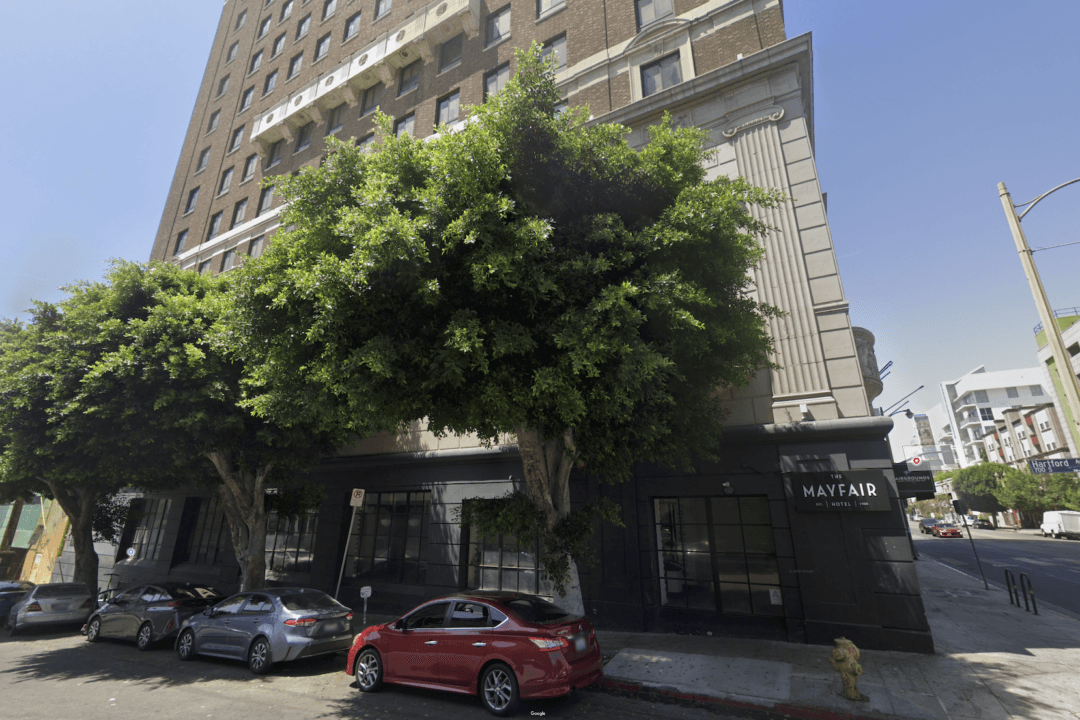LOS ANGELES—After two days of deliberations and reports, a conflicted Los Angeles City Council approved a proposal on Aug. 18 from Mayor Karen Bass to negotiate and purchase the Mayfair Hotel for approximately $83 million for use as interim housing.
In a statement issued Friday afternoon in response to the proposal’s approval, Ms. Bass said, “We need to do all that we can to get Angelenos off the streets and into temporary housing as fast as possible while permanent housing is still being built. The proposed purchase of the Mayfair is an important step toward that goal.





